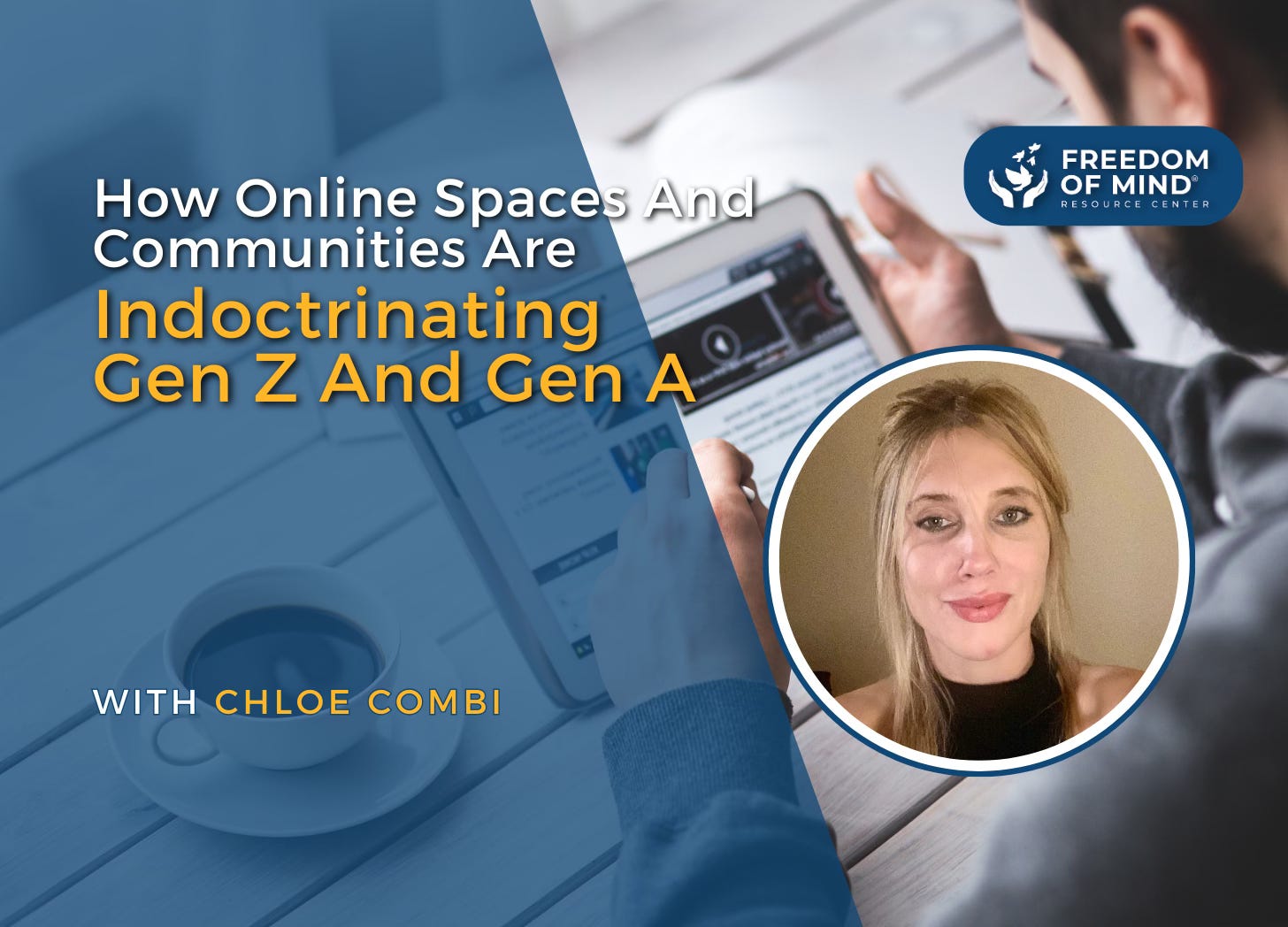How Online Spaces And Communities Are Indoctrinating Gen Z And Gen A With Chloe Combi
The digital age has brought about a massive change in the way we think, feel, communicate, and behave. For young people born and raised in a digital world, being online for an average of eleven hours a day affects not only their brain development, such as shortened attention span, ability to concentrate, social skills, and mental well-being. As well as this, young people’s need for connection and belonging is being exploited by unhealthy ‘influencers’ online, who are using the internet to indoctrinate and radicalize them.
Keep reading with a 7-day free trial
Subscribe to Cults, Culture & Coercion with Dr. Steve Hassan to keep reading this post and get 7 days of free access to the full post archives.




